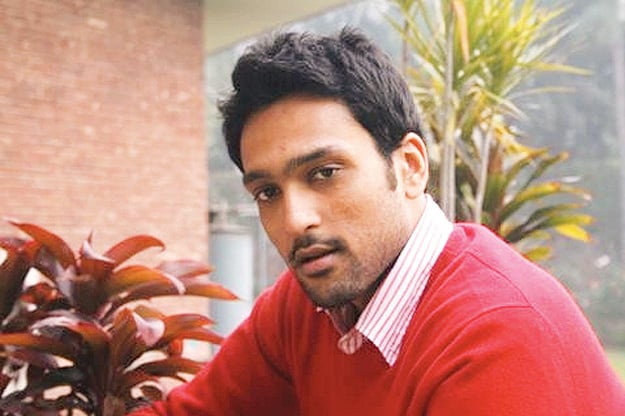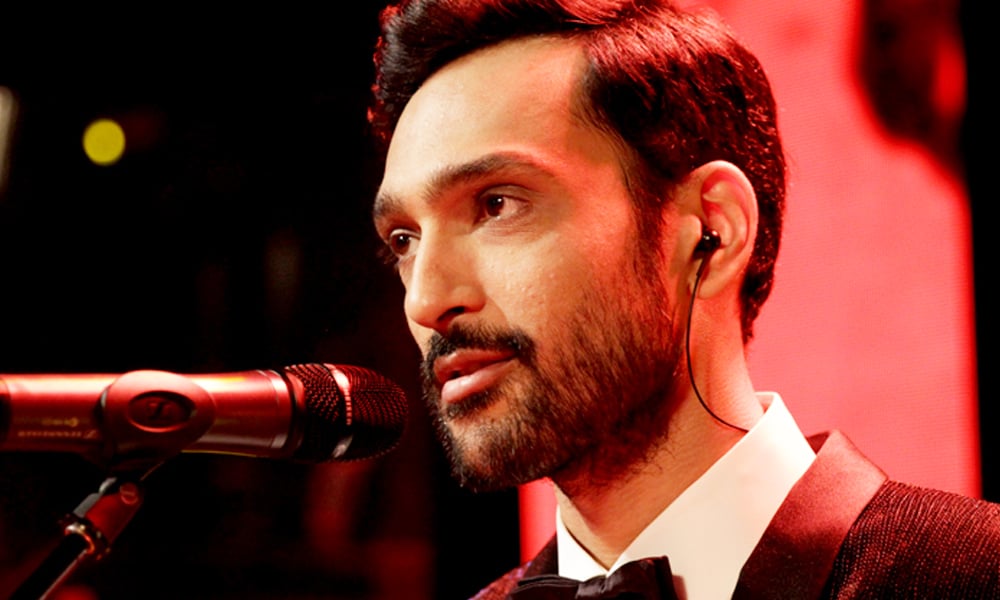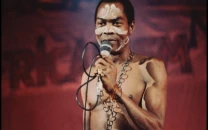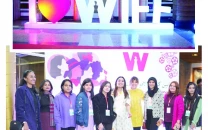There’s a crippling uniformity in South Asian music: Ali Sethi
Singer talks his new track ‘Chandni Raat,’ world music and why he is still so drawn to the ghazal genre

PHOTO: INSTAGRAM
Evens so, his new song Chandni Raat allows him to break away from his previous outings. The track has been penned by the late poet Saifuddin Said and Sethi only discovered it whilst going through compilations of the 21st century. What caught his fancy was the idea of a moonlit night “where it’s dark, but there’s enough light for you to maneuver yourself towards the truth.” The gentle light doesn’t completely expose but is romantic and allows one to convey hidden meanings.
 PHOTO: INSTAGRAM
PHOTO: INSTAGRAM“I was always very drawn to the ghazal because I found that, as a poetic form, it’s capable of accommodating multiple interpretations, all that imagery of separation, union and exile, loss and yearning for reconciliation. It lends itself to personal, political, social… all kinds of interpretations,” Sethi told The Express Tribune. “And thus, in the work of great poets like Ghalib and Faiz, you can find both a sacred and a secular meaning. I feel that for the kind of city and society I live in, ghazal speaks to me very powerfully and to a lot of youngsters. There’s this misconception of it being a sentimental genre but historically, it has been a vehicle for philosophical thought.”
Nonetheless, ghazals do require commitment, even though Sethi feels it stems from the same grammar as qawwali, which he has performed on Coke Studio with Abida Parveen (Aaqa). He did follow the traditions of vocalising. “It does have a strict meter, and there are rules of weight and rhythm so only people truly trained in raag and taal, classical melodies, can do justice to it,” he explained. “I’m also drawn to ghazals because I find it a very rigorous musical genre. Ghazal gayaki demands a commitment and allows you to show your chops.”
 PHOTO: FILE
PHOTO: FILEFor Chandni Raat, the singer turned to years of training under Ustad Naseeruddin Saami of the Delhi Gharana. He’s also been taken under her wings by veteran Farida Khanum, working through raags, especially Gaud Sarang, which is a playful melody associated with rain. Sethi incorporates that and initially applied it in humming, playing on the keyboard to find the tune. He then, finally, sat down with lyricist Shakeel Sohail to pen two couplets so the poetry travels from the already “immediate, personal space into this more profound, political space about unity through diversity.”
He revealed, “I’d been working with producer Noah Georgeson since last summer and sent him a demo from Lahore. He said he hadn’t worked on a piece that’s structured like this but it sounded interesting and suggested limiting the music to a piano and horn? We’ve kept the musical arrangements very spare and recorded it in Los Angeles last November. When I returned, I called violinist Nijaat Ali of the Sachal Orchestra as I felt one element was missing: the violin.”
 PHOTO: FILE
PHOTO: FILESethi spoke highly of Georgeson and his understanding of an artist’s perspective. He also commented on the importance of cultural exchange. “I think that’s how our music was born also: it was created by mixing of Persian, Turkish or Arabian cultures with the culture of the subcontinent. And that is its strength; it’s so very cosmopolitan in nature,” he crooner observed.
The Tinak Dhin hit maker has eluded conventions throughout, experimenting but going back to the roots by recording live-instruments instead of digitally composed music. He has also explored an array of singing styles that aren’t as prominent or commercially recognised today as they were in the yesteryears. One wonders what the struggles, if at all, are for a musician who’s a corporate-favourite, yet independent.
 PHOTO: FILE
PHOTO: FILE“I think there’s a crippling uniformity in the South Asian music right now. I’m dismayed by the state of contemporary music… there’s no visual imagination, respect or regard for tradition or the artisanal element of music. Kids want to be stars overnight; they’re not interested in sitting with ustads and learning the craft,” Sethi pointed out. “The big corporates that spun the music industry also don’t have the ability to set up institutes. What’s happened is that music’s become banal, bland and uninspiring and I’m not the only one who feels that way. And so, it’s about time and more worth our while to seek alternative sensibilities.”
“Singers of my generation and I don’t really share a genre… they’re doing other kinds of music and I think that’s great. But hence, I don’t get many peer reviews. If anything, there are more classically- inclined musicians in India and Bangladesh that I would compare myself with,” he added. “So I feel quite free, which is nice. I think I can do bhangra or pop, like I did on Coke Studio and Cornetto Pop Rock. I don’t think there have to be these strict rules of genre. Musical genres are very fluid and only created when an artiste feels that existing forms are not adequate for what they want to express.”
10th Tehzeeb Festival to showcase future of Hindustani classical
Chandani Raat wasn’t only a one-off for Sethi though. He and Georgeson have been working on an entire album comprising six songs, three of which have been recorded along with a music-video. The singer is currently in the process of shooting for the fourth. He’s also set to perform at New York’s well-known Carnegie Hall later this month.
But that’s not all. Sethi is also working with Chinese-American musician Du Yun on an upcoming western-classical music project. “I am going into it with my training and meeting musicians coming from a different world of music, like opera,” he said. It seems like Sethi has his plans for the year set!
Have something to add to the story? Share it in the comments below.



















COMMENTS
Comments are moderated and generally will be posted if they are on-topic and not abusive.
For more information, please see our Comments FAQ